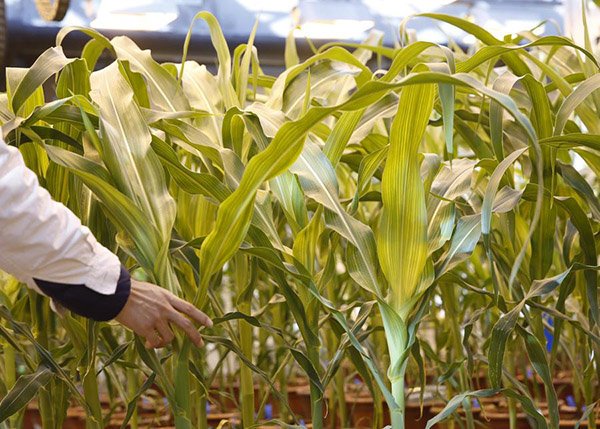China gives training course to Nepalese on maize production

by Shristi Kafle
KATHMANDU, July 17 (Xinhua) — China launched an extensive training course on “Hybrid Maize Comprehensive Technologies” in Nepal on Tuesday to help farmers of the Himalayan country cope with low maize production and ensure food security.
The 46-day-long training program has been jointly implemented by China’s Yuan Longping High-Tech Agriculture Co. Ltd and Nepal Agriculture Research Council which is under the Ministry of Agriculture, Land Management and Cooperative.
The move comes after the Chinese and the Nepali governments signed an agreement on agricultural technical cooperation in February 2016, which will last for three years.
Inaugurating the training program in Kathmandu, Secretary at Nepal’s Agriculture Ministry Dr Yubak Dhoj GC said that it will be a great opportunity for Nepal to learn about Chinese technologies that could change the fate of food crisis.
“Though Nepal government has given high priority to feed its ever-increasing population, we have been failing to boost the production of maize. Amid such, we are hopeful that this training program will be instrumental to address the gaps,” Secretary GC said.
According to Yuan Longping High-Tech Agriculture Co. Ltd, the training is aimed to share hybrid maize technologies, enhance Nepali maize R and D capacities and build a cooperation platform in the field of research, extension and planting.
“The training course will focus on hybrid maize genetic and breeding, seed production, high-yield cultivation and post-harvest technology,” Wang Xiusong from the company said.
Though maize is the second most important crop of Nepal after rice, which contributes to around 27 percent of total food crops, Nepal has not been able to increase the maize production for years.
Nepal produces maize of about 1.5 million to 1.7 million metric tons each year, while the average productivity is 1.8 to 2.0 metric tons per hectare.
According to government statistics, 38 out of 75 districts are thought to suffer from a food deficit in Nepal, which means food insecurity and hunger is yet to be addressed in many parts of the country.
Experts claim that the major factors resulting to the low production of maize are the use of limited or low-quality seeds, no use of hybrid seeds, no improved varieties, low seed replacement rate, lack of irrigation facility, lack of fertilizers and insufficient technical human resources, among others.
Madan Thapa, chief at Seed Quality Control Center, told Xinhua, “Considering the above reasons, the training would help in developing trained human resources from multiple sectors which can result in an increase in maize production as a whole in Nepal.”
Some 35 people from across the country participated in the training course, including those from research organizations, agro-extension system, seed companies, cooperatives, universities and agro-enterprises.
The training, the first of its kind, will adopt theoretical teaching combined with field visits to different places like Chitwan and Pokhara.
Rabin Giri, a participant from the western district Doti, told Xinhua, “I have high expectations from this training program as it includes both theoretical presentations and field tours. I am sure it will be a fruitful one.”
